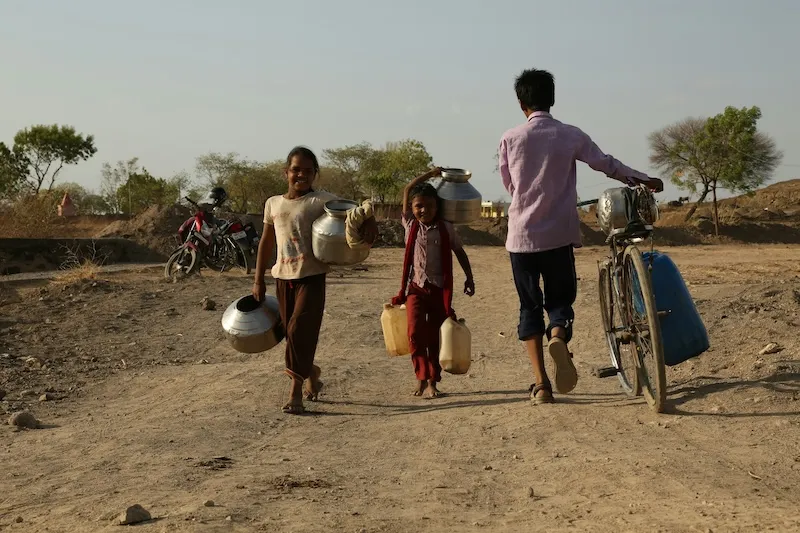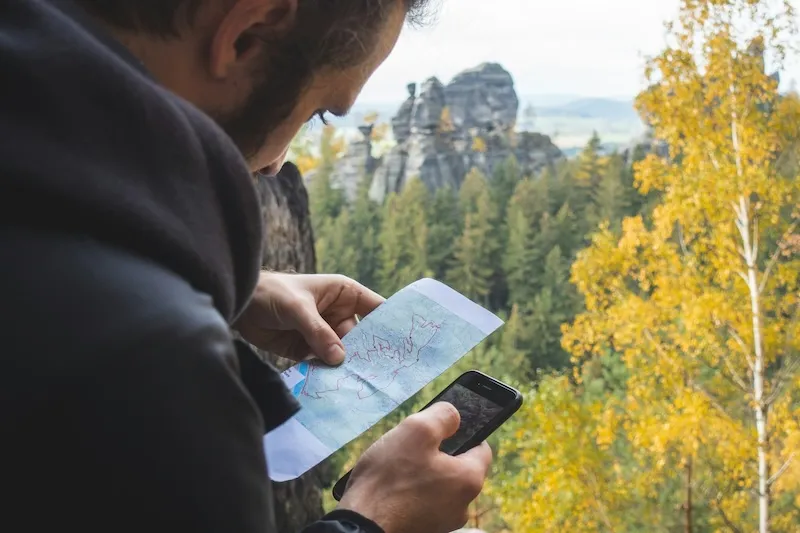Missing tourists
A Heartbreaking Reality

Reflecting on recent search efforts for missing tourists in the Greek islands and the case in Tenerife, Spain, brings to mind similar occurrences I’ve witnessed during my years in Cambodia. Living here, I’ve encountered numerous heartbreaking stories about beloved children and tourists who have gone missing. During my time managing Paradise Bungalows, a resort on the stunning islands of Koh Rong and Koh Rong Sanloem in Cambodia, we often received desperate emails from families asking if we had any information about missing loved ones.
Tourists can easily lose contact with their families while enjoying their time on these islands, especially in areas with limited internet access. This lack of communication exacerbates the anxiety and uncertainty experienced by families waiting for updates.
In Cambodia, while cases of missing people—both locals and tourists—are relatively rare, they receive significant attention both locally and internationally, particularly when individuals disappear under mysterious or remote circumstances. Families and communities often come together to organize search efforts, while authorities conduct thorough investigations to locate the missing and determine the causes behind their disappearance.
Recent news
Tragic Incidents Highlight the Risks

Recently, a series of tragic incidents involving tourists on Greek islands has highlighted the dangers of hiking in extreme heat. Within just nine days, six tourists, including British TV presenter Michael Mosley, either lost their lives or were reported missing. Many of these incidents occurred as individuals embarked on hikes during unusually high temperatures, unaware of the risks involved. Heat exhaustion, dehydration, and other heat-related illnesses can be contributing factors to these unfortunate outcomes.
For example, British TV presenter Michael Mosley, tragically passed away after taking a wrong turn during a walk on Symi. Similarly, another tourist was found deceased in a gorge on Samos after hiking in hot weather. These incidents underscore the significant risks associated with outdoor activities in such environments.
The search for Albert Calibet, a retired Los Angeles police officer missing on Amorgos, continues under challenging conditions. This situation has raised awareness about the hazards tourists may encounter while exploring the remote and captivating landscapes of these islands.
The Emotional Toll
Coping with a Loved One’s Disappearance

The emotional toll of a loved one going missing is profound, affecting families in ways that extend well beyond the initial trauma. Each year, over 170,000 missing person reports are filed in the UK alone, highlighting the widespread yet often misunderstood nature of this issue. Missing People, a charity dedicated to supporting families in such situations, has explored this topic extensively, shedding light not only on the emotional anguish but also on the practical and financial challenges families confront during these distressing times.
While most missing individuals return relatively quickly, approximately 1% remain unaccounted for over extended periods, leaving their loved ones in a state of perpetual uncertainty and hope. Interviews with relatives of missing persons illustrate the complex emotional journey they endure, marked by guilt, regret, and anger. Sandra Flintoft, whose son Craig has been missing since February 2003, reflects on her evolving feelings, from initial worry and sadness to profound distress and anger over time.
Living in limbo
The Enduring Uncertainty

The emotional state of these families is marked by a poignant oscillation between clinging to hope and grappling with hopelessness. For Valerie Nettles,, whose son Damien went missing in November 1996, the enduring uncertainty manifests as a constant sorrow, described vividly as “the beast within,” where hope and fear engage in a relentless battle in her mind.
The prolonged absence of a loved one often leads to what is termed ambiguous loss, where families struggle with the absence of closure. This unresolved state is compounded by conflicting beliefs within families about whether their loved one is alive or deceased, adding strain and potential conflict. Legal and financial issues further burden families as they navigate the practical responsibilities of managing the missing person’s affairs while holding on to the hope of their return.
In essence, the experience of having a loved one go missing transcends mere absence. It leaves families grappling with profound emotional, practical, and existential challenges as they endure the uncertainty of not knowing what has happened and the enduring hope for resolution.
The return
A Complex Reunion

When a missing person is found, whether alive or deceased, it initiates a range of complex emotions and challenges for their families. While there is relief in knowing their whereabouts, this moment is seldom straightforwardly joyful. Families often grapple with unanswered questions and a mix of emotions, including fear of another disappearance or the return of a changed person.
For many families, the return of a missing loved one can evoke a complex mix of emotions. There’s often a bittersweet feeling as they navigate the reunion. They may feel joy and gratitude overwhelmed by the ordeal their loved one endured, yet they also experience frustration over unanswered questions and uncertainties about how to approach the returned individual. It can feel like having a stranger in their midst, unsure of what topics are appropriate or how to bridge the gap caused by the absence.
Despite the Challenges
A Journey Toward Healing

The return of a missing person brings a palpable sense of reunion and renewed hope. Families embrace their loved ones, marking a moment of closure to a period of mourning and uncertainty. This reconnection allows them to begin healing and move forward with a newfound sense of completeness and relief.
However, the return is a complex experience. Both the missing person and their loved ones must navigate the aftermath of the disappearance, which can include emotional scars, trauma, and adjustments to reintegrating into daily life. For the returned individual, readjusting to a world that may have changed during their absence can be disorienting and overwhelming.
Moreover, the return may not always bring the answers or resolutions families hoped for. Sometimes, the circumstances surrounding the disappearance remain mysterious or traumatic, complicating the process of healing and reconciliation. Families may face ongoing emotional, psychological, and practical challenges as they rebuild their lives and relationships in the aftermath.
Ultimately, while the return of a missing loved one is a moment of profound relief and joy, it also marks the beginning of a journey toward healing, understanding, and rebuilding. It underscores the resilience of families and communities in the face of adversity and the enduring hope that sustains them through the darkest of times.
Planning a Hike or Trip?
Think About Your Loved Ones

If you’re planning to go trekking, hiking in remote areas, or travelling around the world, it’s essential to take steps to ensure your safety and peace of mind—not just for yourself but for those who care about you. Here’s a checklist to help you prepare:
-
Research Your Destination – Thoroughly research the area, including local customs, laws, weather conditions, and potential risks.
-
Plan Your Itinerary – Create a detailed plan, including your route, accommodations, and emergency contacts. Share this with a trusted friend or family member.
-
Check Travel Advisories – Stay informed about safety concerns or political instability in the region.
-
Pack Appropriately – Bring essential gear, including weather-appropriate clothing, sturdy footwear, navigation tools, a first aid kit, and emergency supplies.
-
Stay Connected – Ensure you have reliable communication, such as a fully charged phone, local SIM card, or satellite phone for remote areas.
-
Health Preparation – Visit a healthcare professional for necessary vaccinations or medications. Carry copies of prescriptions and health insurance details.
-
Travel Insurance – Purchase comprehensive travel insurance covering medical emergencies, evacuation, and trip cancellations.
-
Safeguard Documents – Keep your passport, visa, and identification secure. Carry copies separately from the originals.
-
Stay Vigilant – Be aware of your surroundings and trust your instincts. Avoid risky situations.
-
Emergency Contacts – Carry a list of emergency contacts, including local authorities and your country’s embassy.
-
Environmental Responsibility – Follow Leave No Trace principles and respect local communities and wildlife.
-
Regular Check-Ins – Establish a routine to update loved ones on your whereabouts and well-being.
Take away
Be Careful and Be Aware

By following these essential steps, you can significantly enhance your safety and ensure a more secure and fulfilling travel experience, whether you’re trekking in remote areas or exploring unfamiliar destinations. Taking proactive measures—such as thorough research, meticulous planning, packing appropriate gear, staying connected, and maintaining health and safety precautions—will ensure you’re well-prepared for the adventures ahead.
These steps aren’t just about safeguarding your well-being; they’re about empowering you to fully enjoy and cherish your travel experiences with confidence. So, before you set off on your next adventure, take a moment to think about your loved ones and the peace of mind your preparation can bring them. Stay safe, stay aware, and make every journey a memorable one for all the right reasons.







